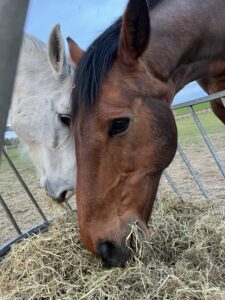Forge our own path
School opportunities and disappointments leaving the school system
There are quite a few changes that I’ve noticed about a change in heart. I was disappointed when we left the school system about some of the opportunities I had hoped for on behalf of our children. I had hoped they could be part of an orchestra, or a band, or a musical production. I hoped they would have sporting opportunities – hockey, basketball, sailing. These were all groups that I was told the school would provide. But the main extra curricular activity was a computing, coding group. I feel slightly sceptical that, while it captured the interest of several students, and the computing teacher seemed to have positive input with them, that it was still just appealing to the dopamine addiction on which the whole school seemed to thrive.
 My disappointment wasn’t upon withdrawing from the school. It was a gradual process of realising what opportunities they wouldn’t receive.
My disappointment wasn’t upon withdrawing from the school. It was a gradual process of realising what opportunities they wouldn’t receive.
But these were all opportunities I hoped for on behalf of my children. Now out of the system, they can choose not what the school offered, and not what I wanted, but what their own interests and strengths are.
Forge our own path – extra curricular
We can choose what interests they truly feel passionately about. We don’t need to rely on what the school offers, nor adhere to any favouritism and wait in line. So we now have the opportunity to forge our own path.
Unwinding from fractured mentality
This week I have noticed a change. When we were new to home educating I was confused by the behaviour of other home ed families. They were many of them sociable, friendly and outgoing, but they always ultimately gravitated back their own families. Their sphere of influence centred in their family structure.
Unschooling from dependence and finding their own identity
I on the other hand was always looking for other likeminded children for our boys to ‘socialise’ with. I didn’t aim for the same ‘socialising’ time as schools, but I put a lot of value on socialising opportunities for our children – that they needed this. I was willing to believe that my children needed other children to contend with, and to a certain extent this is a major asset. But I would now relax into the unschooling process that allows them to find their own identity, rooting into their family, rather than allowing them to have their identity implied through any peers that happen to circulate around them, from any walks of life, that they are required to find concordance with. We can begin to forge our own path.
Why are home ed children so insular
I was surprised to find home ed families that were more plugged into their own family community than to the drive of socialising with friends. They were fun, imaginative, kind, understanding and keen to play, but they stayed within their family community. Where I expected a mob of children on a field trip, dragged around by the queen bee of the group, with parents pulled in multiple directions under the children as they spar for the authority and hierarchy, I found family groups like shoals of fish, with older ones pairing off and reliably returning to their bubble. They surfed the wake of their family boat. Surrounded by the vast ocean, they know the support and direction of the family.
 Surfing as a family – forge our own path
Surfing as a family – forge our own path
For a long time, I couldn’t understand why they seemed so insular. Or so it seemed. But after the past year of what felt like a lot of desert, I am beginning to settle into the mind set. Over the past year I have had a sense that we are boring deeper into who we are. The children are putting down strong deep roots, discovering who they are. And we as parents are finding out more about who our children are, reconciling from the separation from their school life. We are more sure about what we want to do, and we don’t rely on the tides of small, clique social circles that seem so all encompassing at the time. We are becoming more confident to beat to our own drum.
Finding likeminded turtles
Now we look for like minded friends but not for unrealistic swathes of time for the children to apparently work and socialise at the same time. We don’t rely on the opinions of their peers to dictate how acceptable they are, or what they choose to find interest in, nor to buy into different fads. Our children are comfortable in their own company. And they are increasingly comfortable in who they are around friends that they have established. Also, they are learning that they must behave appropriately if their peers are to choose to spend time with. No one is obliged to be friends with my home ed children – they must navigate that and draw the line for themselves. And my children know, their friends will draw that line too. We can support them in building relationships. And we forge our own path.
Genuine friendships
I am still keen to meet likeminded people and for my children to spend time and share interests with likeminded friends. But we seem to be less driven by the ‘need’ for my children to be ‘socialised’. Socialising is not limited to children all born within the same year as themselves, but they are surrounded by the family and folk that we are with, organically. Sustainably. Not manufactured.


Pingback: lose to win - My Blog